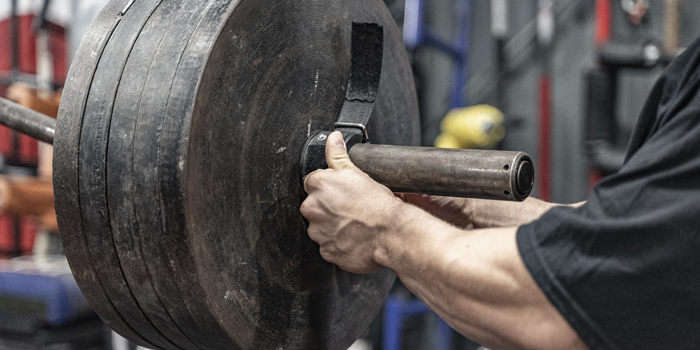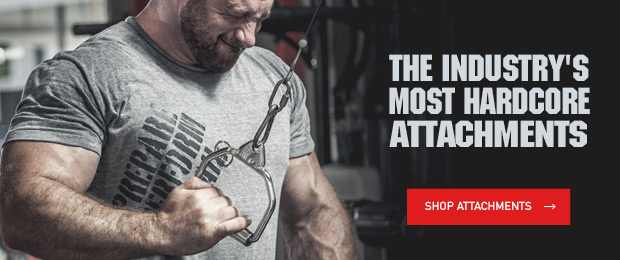
We’ve all had times in training when you’re at a plateau, and it seems like nothing you do can break through it. In many cases, your lifts might even be going backward, and it can be incredibly confusing and frustrating. There are many obvious reasons your progress can stall, but some not-so-obvious ones don’t get enough attention from the average lifter.
These are things that I didn’t appreciate enough when I was in my 20s but have risen to the top of my priority list in recent years. Each topic could be an article of its own, but I have distilled them down to a handful of actionable steps you can take. Detailed videos below accompany several topics. If you have questions or need clarification, don’t hesitate to reach out.
Gut Health
Gut health is something I did not appreciate enough until recently. For most lifters, constant cramping, bloating, gas, and general stomach upset has become so normal that people don’t think twice about it.
RECENT: 8-Week Reset Program for the Stressed Lifter
There is a lot of variation in how people react to different foods and diets. Still, one thing to recognize is that constant gut issues will hamper your performance and recovery ability. Gut upset will cause inflammation, prevent recovery, interrupt sleep, and affect your mental health and focus. There are a number of different interventions that will depend on the individual, but the biggest thing is to address the issues you have and work on slowly making progress.
Action Steps:
- If you live on antacids and other stomach medications, start addressing the source of problems, rather than just the symptoms (these medications also have side effects that are worth avoiding).
- Start eliminating some common irritating foods and see how the impact makes you feel. Common ones are gluten, dairy, and artificial sweeteners. If you feel better after eliminating them, you can slowly re-introduce them to determine your level of tolerance.
- Look at your nutrition labels and start tracking what makes you feel like garbage after eating and drinking.
- Try to eat as many whole foods as possible (versus processed “health” foods). You’d be surprised the impact many of the ingredients can have on your gut health, even if they’re low in calories (yes, even the Quest Bars and Powerade Zeros we all love so much).
- Adopt a sustainable diet with whole foods. The Vertical Diet from Stan Efferding is a great option that is very gut-health friendly.
- If you have persistent issues, see a health care provider. Gut health issues could be the result of something bigger.
Sleep
For years I competed in powerlifting while getting awful sleep and rarely falling asleep before 2 am or 3 am (much of which was due to anxiety and poor evening habits). I didn’t realize just how negative of an impact this had until I got my sleep under control.
The past year I’ve gotten my sleep to not just an acceptable level, but an exceptional level (most of the time), and it’s made a life-changing difference in my performance, recovery, gut health, anxiety, relationships, and focus at work. If there’s one thing you take from this article, it should be looking at how you can fix your sleep. The payoff is absolutely worth the effort.
Action Steps:
- Address sleep apnea if you suspect you may have it. (Even if you can’t do a full sleep study, using a pulse oximeter can show you if your oxygen saturation is dropping at night).
- There are several different interventions ranging from a CPAP to mouth guards, to pillows that help you not sleep on your back.
- Stop caffeine intake after 3 pm.
- Wear blue light-blocking glasses after 7 pm if you watch TV or use devices at night.
- Use the night mode option on your phone and computer after 7 pm.
- Use blackout curtains in your bedroom to keep it as dark as possible.
- Keep your room cool (60-67 degrees)
- Take bioavailable magnesium and melatonin (1-3 mg) at night.
Evolution of Technique
Many lifters struggle to recognize the point in their lifting career when certain technique doesn’t serve them anymore. To progress, technique must evolve. In the first few years of training, progress is typically fast and linear because of neural adaptation. As you progress, however, PRs are harder to come by and will often be from (1) time, and (2) manipulating small details in technique and programming.
You don’t want to toss out everything that’s gotten you to this point, but you may need to evaluate technique changes to take your lifts to the next level. The time of just “muscling” up a lift with bad technique has likely come to an end or resulted in injuries that are making progress unsustainable.
Action Steps:
- Embrace humility and growth. It can be hard to consider changes from what has worked and been comfortable for you, but it is likely necessary to take you to the next level.
- Find good coaches (you’re in the right place here at elitefts) and follow their content. Look for coaches that work with lifters who resemble your situation.
- Research and use trial-and-error. There are hundreds of great articles on technique here at elitefts to learn from.
- Consider getting a coach that can examine your technique. In-person is always best, but distance coaching can be helpful if you find a good coach (most on social media are not). I’m not currently coaching clients, but I’m happy to look at your technique if you’d like to send it my way.
- Be patient. Time is your ally, and the more advanced of a lifter you become, the more patience progress will require. Patience is the main thing that separates the good from the great lifters.
Joe Schillero has competed in both powerlifting and strongman with an elite total in the 220-pound weight class. He has his master's degree in exercise physiology and is currently the General Manager at the Mandel JCC in Cleveland, Ohio. In this position, he oversees fitness, membership, and aquatics operations. He can be reached at joeschillero@gmail.com.











Appreciate the article. So when is the book coming out?
Dale Guidry
And maybe one of these days a book will be in store, I'm gradually compiling info for one..
Best of luck in continued training!